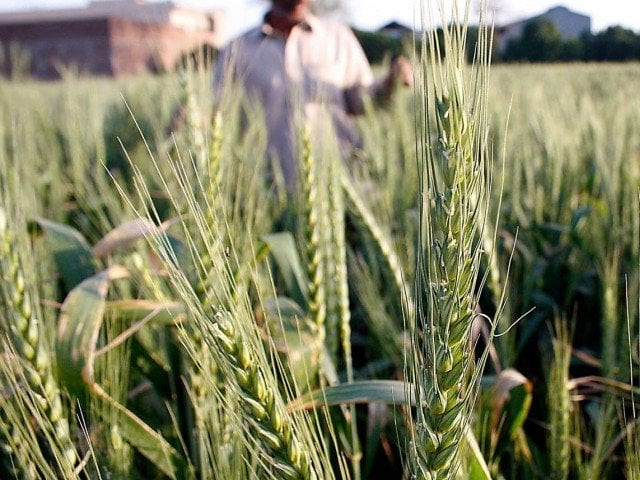Govt to spend Rs15b on farm-market connectivity
Move to promote trade in rural areas by improving farm to market access

PHOTO: FILE
On Thursday, Punjab Chief Minister Sardar Usman Buzdar highlighted that the first phase of the project will be completed this year. The second phase of the project, involving carpeting rural roads across Punjab, will start from January 2020.
“It is an ongoing programme which will continue for five years; two phases will be completed each year,” he said.
The chief minister stated that constructing rural road infrastructure will help in generating trade and economic activities in rural areas by improving farm to market access. “It will also give the local population better access to various institutions such as hospitals, health centres, schools, colleges and universities,” he said.
ECC defers decision on wheat support price hike
The PTI government believes in composite development across Punjab, he maintained.
Earlier, Buzdar inaugurated the Naya Pakistan Manzilain Aazan project. Speaking on the occasion, he stated that the government has formulated a comprehensive strategy to develop backward areas for which the five-year project has been launched.
The annual development programme is being implemented speedily. The welfare of the masses is the government’s only agenda, he said.
Several programmes for the rehabilitation of the underprivileged are under way to bring them at par with the rest of the province, he added.
Various studies have indicated that poor farm to market access is one of the major issues in agriculture marking in Pakistan. Unpaved and unmetalled roads are often unusable during the rainy months and winter. The unavailability of reliable transport facilities further aggravates the situation which causes massive post-harvest losses, especially in relation to perishable commodities.
Studies point out that the private sector is involved in transporting farm commodities with little government involvement; the contribution of the National Logistics Cell (NLC) and Pakistan Railways in marketing farm products is negligible.
Currently, NLC is overburdened and Pakistan Railways is not operating a sufficient number of freight trains due to mismanagement and shortage of resources.
Therefore, the entire responsibility lies with the private sector which exploits the situation by charging inflated freight that inevitably increases marketing costs that are largely shared by consumers and farmers.
Despite price rise, wheat farmers get no incentive
The non-existence of good roads also limits the use of economical modes of transportation such as trucks. Therefore, farmers and traders have to rely upon less efficient modes of transportation such as carts and small vans.
However, the poor condition of farm to market roads is also an obstacle in introducing innovations and new technology such as replacing wooden crates with fibreboard.
Data indicates that the present length of farm to market roads (60,000 km) is crucially less than the potential requirements. There is an immediate need to increase the length of such roads to improve farmers’ access to markets. The establishment of such roads, particularly in remote rural areas, should be the top priority of policy reforms.
Published in The Express Tribune, November 29th, 2019.



















COMMENTS
Comments are moderated and generally will be posted if they are on-topic and not abusive.
For more information, please see our Comments FAQ